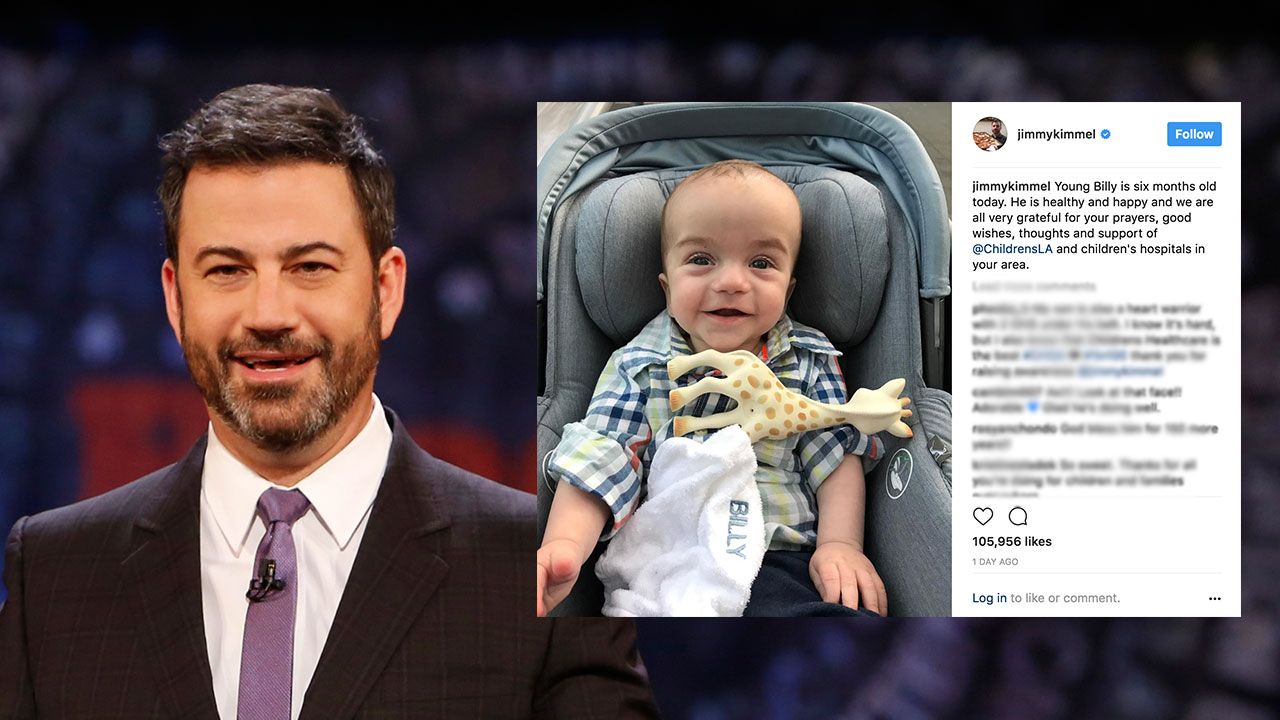Jimmy Kimmel is heartbroken when his youngest son, Billy, innocently says: “Maybe the family would be happier without me.”

On a recent episode of his late-night show, Jimmy Kimmel shared a deeply emotional moment that resonated with many viewers—the moment his youngest son, Billy, expressed feelings of doubt about his place in their family. Billy’s innocent remark, “Maybe the family would be happier without me,” not only broke Kimmel’s heart but also highlighted the struggles many families face when it comes to communication and emotional well-being. This touching moment serves as a stark reminder of the significance of addressing children’s feelings and fostering an environment where they feel secure and valued.
The Impact of Words on Children and Families

Children often perceive situations differently than adults, leading to conclusions that can be distressing. Billy’s remark, spoken from a place of innocence, reflects an internal struggle that many kids experience. As parents, it is essential to understand that children may not fully comprehend the stability of their surroundings and may sometimes feel they are a burden. These sentiments can arise from various triggers, such as changes in family dynamics, personal troubles at school, or simply the challenges of growing up.
Jimmy Kimmel’s reaction to his son is an important aspect of how parents should approach such delicate conversations. Instead of dismissing Billy’s feelings or trying to quickly rectify the situation, Kimmel acknowledged the significance of the statement and used it as an opportunity for a deeper discussion. This approach not only reinforces the bond between parent and child but also encourages children to express their emotions openly without fear of judgment.
Fostering Open Communication in Families

The emotional well-being of children can be significantly improved when families prioritize open communication. Children benefit immensely from knowing that their feelings are valid, and parents should create safe spaces where they feel comfortable expressing themselves. This practice can help alleviate feelings of loneliness and anxiety that children may experience.
- Encourage Regular Conversations: Make it a habit to check in with your children regularly. Ask them about their day, their feelings, and anything that may be bothering them.
- Be a Good Listener: When children speak, it’s crucial for parents to listen actively. Validate their emotions and provide comfort rather than jumping to solve problems immediately.
- Share Your Own Feelings: Open up about your feelings as an adult. This can teach children that expressing emotions is normal and healthy.
- Create Trust: Build trust through consistency and reliability. When children know they can depend on their parents for support, they’re more likely to share their true feelings.
The Role of Emotional Support in Child Development

Kimmel’s heartbreaking moment with Billy also reinforces the importance of emotional support in a child’s development. Children need to know they are loved and accepted unconditionally, regardless of their missteps or misunderstandings. When children feel emotionally supported, they are more likely to thrive academically and socially.
Research has consistently shown that a nurturing home environment encourages children to develop resilience and coping skills. This nurturing should extend beyond mere affection; it should involve active participation in their emotional lives. Parents can reinforce their support by celebrating successes, big or small, and comforting them during difficult times.

In Billy’s case, Kimmel’s response to his son’s words is a powerful reminder of how crucial it is for parents to maintain a strong connection with their children. By understanding the emotional complexities that young kids may face, family members can work together to create a resilient support system that fosters healthy relationships and emotional expression.
Conclusion

Jimmy Kimmel’s heartfelt moment with his son Billy serves as a poignant reminder of the significance of emotional communication within families. By addressing and validating children’s feelings, parents can create an environment that nurtures their emotional growth and strengthens family bonds. It’s essential for parents to engage with their children, allowing them to express themselves without fear of judgment. Let this be a call to action for parents everywhere to prioritize open and honest communication in their families, ensuring that every child knows they are loved and valued just as they are.





